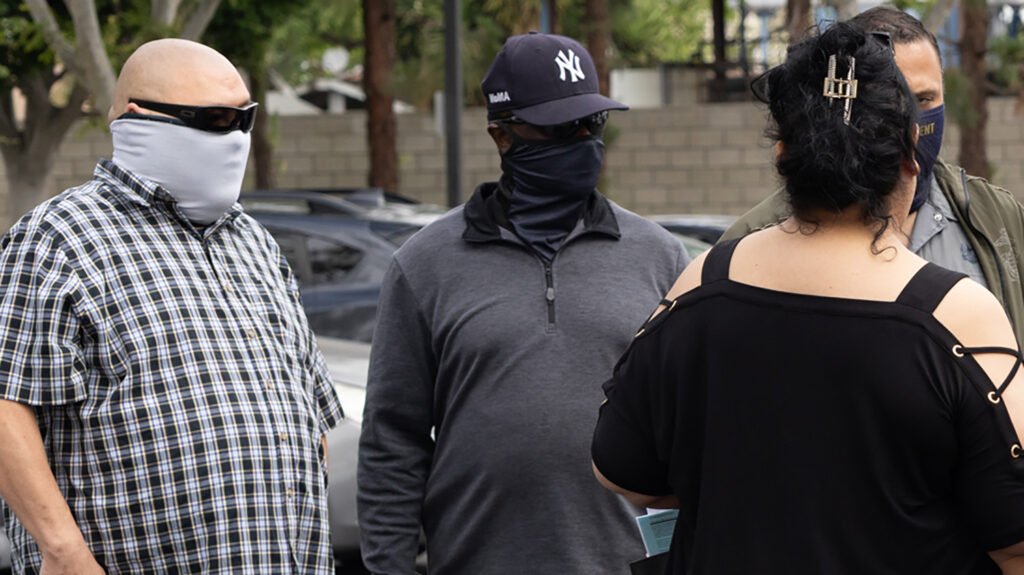On a typical Saturday afternoon, U.S. Congressman Lou Correa finds solace in the labyrinth of aisles at Home Depot, his “toy store,” as he affectionately refers to it. Amid the familiar scents of sawdust and freshly cut lumber, something has shifted. The vibrant world he once relished feels tainted, overshadowed by a palpable fear reverberating through his community—one marked by a heavy National Guard presence and increasingly scrutinized by the relentless eyes of Immigration and Customs Enforcement (ICE).
Lou Correa: A Congressman Caught Between Politics and Community Shadows
For Correa, a Mexican American representing Santa Ana in Congress, the stakes have never been clearer. Residents, especially those with Hispanic backgrounds, feel acutely aware that a simple visit to the local hardware store could lead to an unexpected encounter with ICE agents. “I can’t help but wonder,” Correa admits, “what if I’m stopped while I’m just looking for tools?”
Over the past months, heightened ICE presence in Orange County has morphed the everyday life of its residents into a state of vigilance. Reports of agents deploying masks and uniforms stripped of identifying badges have heightened concerns. Activists argue that such an approach to law enforcement undermines trust in public officials and threatens community safety.
The Dynamics of Fear
“We need to bring attention to this issue,” Correa said, underscoring the distress felt among his constituents, many of whom are hard-working individuals without criminal backgrounds. The fear is woven into the very fabric of daily life, affecting how parents speak to their children about safety, how families gather, and how individuals navigate their own neighborhoods.
Local immigration advocates are raising alarms—ICE raids are focusing on sites where laborers congregate, such as construction sites, car washes, and, notably, Home Depots. The scenario paints a disheartening picture: agents targeting the very heart of the working class, with little regard for the devastating impacts on families.
- Increased visibility of ICE operations.
- Agents wearing masks to obscure identities.
- Affects the sense of community safety and trust.
The Legal Landscape
The Department of Homeland Security (DHS) asserts that their enforcement operations are “highly targeted” and that agents are trained to focus on known offenders. Yet, the reality on the ground contradicts this narrative. Correa, along with other lawmakers, has responded with urgency, proposing legislation that seeks to end the practice of masked agents, raising vital questions around transparency and accountability in immigration enforcement.
“How am I supposed to know who’s pulling me over?” he questions, reflecting a growing concern echoed by many community members. The proposed “No Secret Police Act,” co-sponsored by Representatives Dan Goldman and Adriano Espaillat, would mandate law enforcement conduct to include the display of identifying insignia. In debate, Correa emphasizes that federal agents’ behavior invokes a sense of lawlessness. “Only bad guys wear masks. This is America,” he asserts.
Historical Context and Current Implications
The recent spike in enforcement actions recalls a tumultuous past, where minority communities often faced unwarranted scrutiny from law enforcement. Professor Maria Elena Martinez, a specialist in immigration policy at the University of Southern California, notes, “Historical contexts reveal that marginalized communities often bear the brunt of aggressive immigration enforcement. Recent tactics further exacerbate an already fragile trust between citizens and the state.”
This erosion of trust is seen not only as a legal issue but as a civil rights concern. Community organizers argue that masked raids result in the loss of essential protections for residents, with families shattered overnight by detentions stemming from aggressive enforcement tactics.
Community Response and Legislative Action
As a measure of solidarity, local officials in Santa Ana are preparing to debate new initiatives to combat these growing fears. A proposal on the agenda aims to prohibit law enforcement from obscuring their identities during interactions with the community, echoing Correa’s sentiments. “We shouldn’t have to question who is enforcing the law,” Councilwoman Jessie Lopez proclaimed.
However, the way forward remains complex. “There’s a delicate balance between law enforcement and community trust,” asserts David Ruiz, a civil liberties attorney. “History shows us that dehumanizing tactics can lead to more significant strife.”
This current chapter in immigration enforcement is marked by potential for change as advocacy groups and legislators mobilize. With Correa at the forefront, a push for transparency and accountability aims to confront the shadows cast by masked raids. The ongoing debate within both local and federal frameworks highlights a growing awareness that law enforcement practices must protect communities, not instill fear.
The convergence of advocacy, community responses, and legislative initiatives signals a critical moment in America’s ongoing conversation about immigration and civil rights. Lou Correa shares a sentiment that resonates deeply: “Our communities deserve to feel safe, to know who is protecting them, and to live free from the fear of unknown agents roaming our streets.” A commitment to change is now essential to restore faith within the communities caught in the crossfire of political strife.





